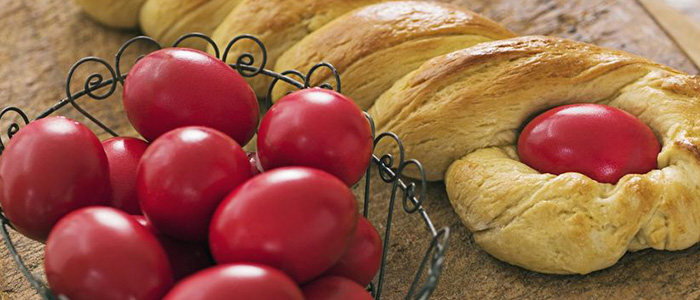(A glimpse into the traditional festivities of a Greek Orthodox Easter) Over 90% of Greeks identify with the Greek Orthodox Christian faith. Their church has played a strong part in their history and religious traditions are important to them. One of the most celebrated events of the calendar is the Orthodox Easter and this year…
Tag: greek easter
Kalo Pascha
We just wanted to wish you all a very happy Greek Easter! If you want to visit the Ionian Islands for Greek Easter 2020, we recommend visiting Corfu Town where the Easter festivities are spectacular. With colourful processions, Philharmonic bands, dancing and even a tradition of throwing ceramic pots from windows and balconies to ban…
Carnival Season on Lefkas
The Greek word “Apokries” means abstaining from meat and is used to describe Greece’s carnival season, which precedes the 40 days of fasting (Lent) that lead up to Easter. In Ancient Greece there were celebrations at this time of year to commemorate the end of winter and the coming of spring, which were associated with…



